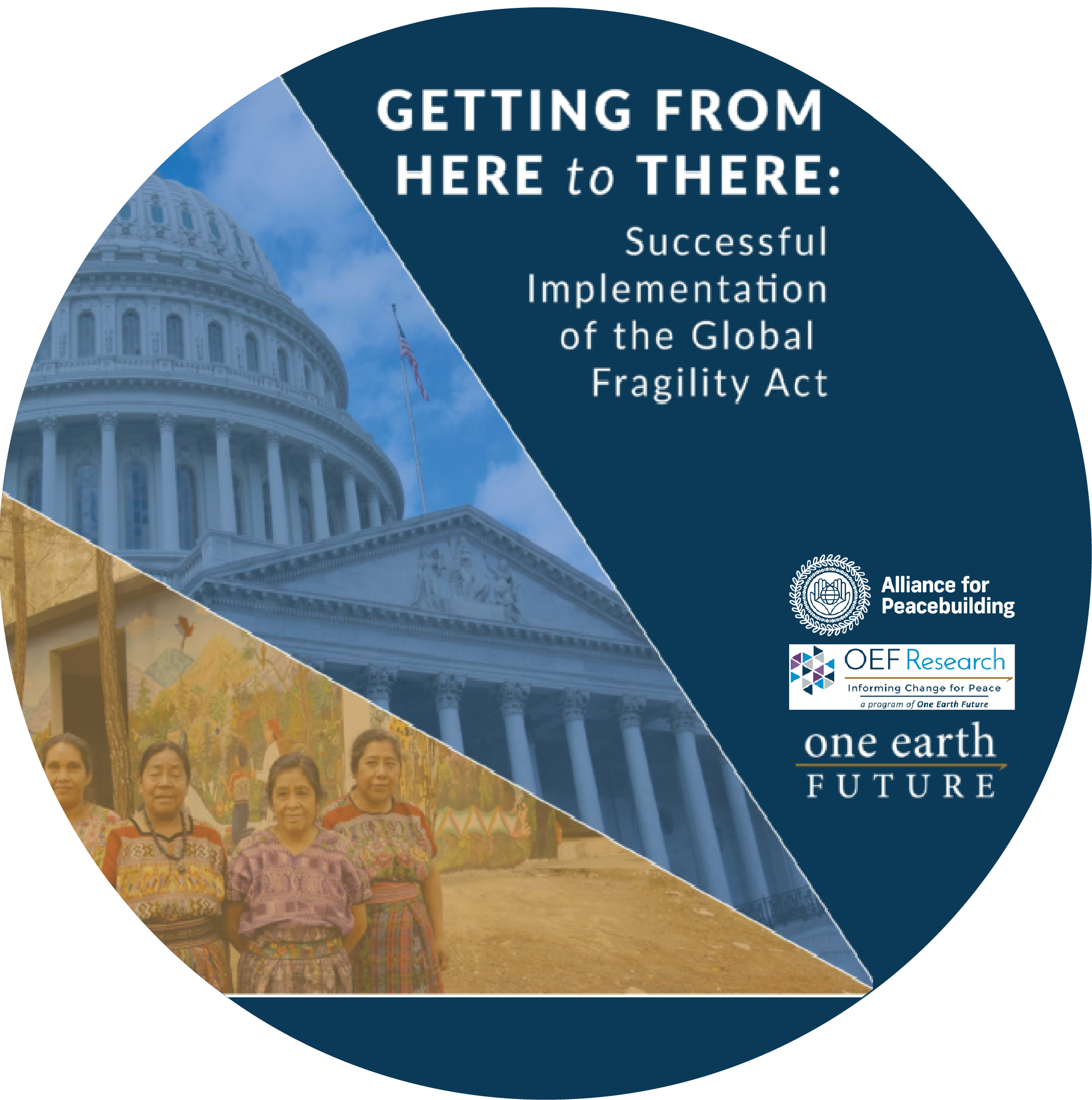AfP’s response to covid-19
AfP’s Response to COvid-19
As of March 12, AfP is on mandatory telework until further notice. This is a preventive measure, intended to enhance social distancing and mitigate prospects for spread of the virus during a period of uncertainty.
This does not mean AfP is shutting down; quite the contrary, we are hard at work in telework mode, and encourage you to contact AfP staff directly via email with general inquiries.
We have suspended all non-essential work travel and in-person gatherings until further notice. We will be convening virtually and welcome robust participation as we engage with members and partners.
Afp’s call to action on covid-19
As a global network of 130+ organizations working to end violent conflict and sustain peace, the Alliance for Peacebuilding (AfP) underscores our collective resolve to alleviate the destabilizing impact of COVID-19 and help societies prevail and recover in its aftermath. While COVID-19 has unleashed unprecedented hardships in North America, Europe, and Asia, its destructive potential is far greater for conflict affected and fragile states and the world’s most vulnerable populations. Pre-COVID-19 conflict drivers resulted in the largest recorded displacement of civilians worldwide, over 70 million by 2018, with the number of armed conflicts worldwide at a modern-day high. Weakened public health infrastructure, combined with intensified armed conflict and civilian losses this year in Syria, Yemen, the Sahel, Afghanistan, Libya, and beyond point to a potentially catastrophic situation once COVID-19 takes hold. As of late March, confirmed COVID-19 cases in Africa were increasing at a rate of 25% a day.
These dire circumstances point to the urgency and opportunity for policy reforms to end wars, change the way assistance is delivered, and accelerate inclusion – all towards saving lives and creating a better world:
The pandemic requires the peacebuilding field to quickly adapt its programs and work. The field is rising to this challenge with bold initiatives to address this complex, unprecedented, and evolving crisis. To ensure the peacebuilding field has access to materials and reports, we curated a COVID-19 Resource Library. This contains the latest lessons learned and best practices on working during COVID-19.
The COVID-19 pandemic is more than just a health crisis - it is fueling ‘stabilization in reverse’ by increasing instability and violence and exacerbating conflict dynamics in conflict-affected and fragile states. We need an integrated peacebuilding strategy to prevent and contain the COVID-19 global pandemic and ensure stability around the world. AfP developed a COVID-19 Response Policy Brief which includes recommendations for bilateral and multilateral donors to ensure peacebuilding and conflict prevention are at the center and integrated into their COVID-19 strategy.
We need a global ceasefire to mitigate the pandemic’s impact in conflict affected and fragile states. 70 countries and non-state actors in 11 conflict zones endorsed the Secretary-General’s call, which would allow the flow of vital aid to war-torn areas and civilians under siege. A global ceasefire is a first step that must be accompanied by intensified peacebuilding, conflict resolution, inclusive peace processes, and post-conflict reconciliation to bring intractable conflicts to a sustainable end. AfP members are at the front lines of such efforts, from Afghanistan to Yemen, and ready to seize windows of opportunity opened by a pause in armed conflicts worldwide. We urge community, faith-based, and private sector organizations to join us and 190+ NGOs calling for Security Council action on a global ceasefire. Interested individuals can also join the +Peace #GlobalCeasefire NOW mobilization to help make the case for why #PeaceWorksBetter in their own communities.
Donors must pivot towards long-term, flexible, conflict-sensitive assistance, rooted in local leadership and evidence. Such reforms are enshrined in the Global Fragility Act (GFA) of 2019, which requires full appropriation and an implementation strategy this year. International donors can go much further, however, in “shifting the power” in assistance delivery to local actors, who have the greatest capacity to turn the tide on the ground but receive just 12% of U.S. foundation giving. AfP will convene donor-implementer dialogues to move this agenda forward, elevate local peacebuilders’ voices in civil society consultations and recommendations on GFA implementation, and advise policymakers on best practices for conflict-sensitive pandemic response.
We must accelerate gender inclusive and youth leadership in COVID-19 response and post-pandemic peacebuilding recovery. Research shows women die in higher numbers from the indirect effects of conflict, including the spread of infectious diseases. Women are also disproportionately on the front lines of COVID-19 as first responders and caregivers are suffering related severe economic hardship in higher numbers, and face greater danger of domestic abuse in the current context. Youth make up the majority of the population in conflict affected states, yet remain underrepresented in overseas conflict prevention, resolution, and post-conflict recovery. Only 0.14% of global foundation giving goes to youth-oriented peace and security work, despite evidence of high social return for investments in youth peacebuilding. We welcome widespread global participation in new initiatives like ICAN’s She Builds Peace campaign to Stand with Women Peacebuilders and the AfP-Search for Common Ground-led Youth, Peace, and Security coalition to redress these imbalances, a task more important than ever in the current and post-COVID-19 context.






